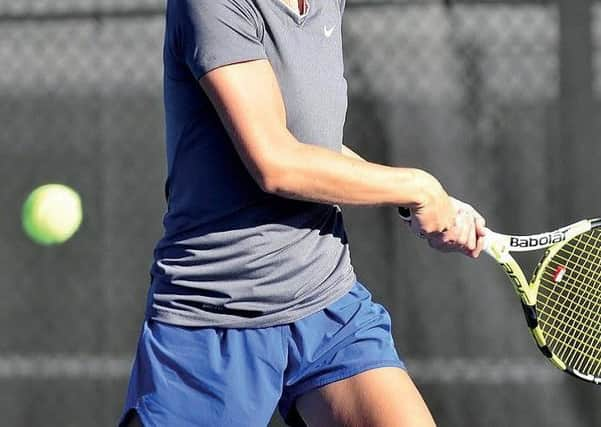Judy Murray: Cost of developing a young tennis player beyond average family


She said they were “skint” and had to take out a loan to fund Andy’s place at a tennis academy in Barcelona for three years when he was a teenager.
Murray said there was no prize money in junior tennis and it was very expensive to travel the world playing tournaments.
Advertisement
Hide AdAdvertisement
Hide AdIt was only after Andy turned professional at 18 in 2005 that he started earning, which helped the family support elder brother Jamie’s career on the doubles circuit.
“Andy won the US juniors in September 2004 and by the end of September 2005 I was watching him playing the final of an ATP tour event in Bangkok against Roger Federer,” Murray said.
“It was like the fastest rise ever. My God, it was fast, we were absolutely skint.
“You have no idea how expensive it is to develop a young tennis player. Once they outgrow their county area, you have to travel.
Advertisement
Hide AdAdvertisement
Hide Ad“Once you try and rise up the world junior rankings by having to play overseas, it is like going on holiday every week but without the fun.
“Its hotels, accommodation, meals, physios etc and there is nothing coming back in because there is no prize money.
“It’s an enormous expense and it is why many, many kids and families pull out of it because the costs are just beyond the average family.”
She added: “My kids work incredibly hard at what they do, they have a very good work ethic and, coming from Scotland, you appreciate everything you get and you do work hard because nothing is handed to you on a plate.”
Advertisement
Hide AdAdvertisement
Hide AdThe mother-of-two, who was speaking at the Cheltenham Literature Festival on Sunday night to promote her new book, Knowing The Score, said there was a lot more help in team sports.
“Tennis is a very expensive sport. If my kids had gone into rugby, football or cricket and been signed up by a club, the club would have paid for the kit, the training, the transport, the fixture list etc and as a parent you wouldn’t have to do very much, but in an individual sport you are responsible for all your own costs,” she said.
Murray also spoke of overcoming sexism in a male-dominated sport and described a time when she won a place on a tennis coaching course, alongside one other woman and 18 men.
“One of the tutors said to me on the first day ‘You’re very lucky to have a place on this course and we had to turn a lot of men away. In fact we had a formal complaint about you getting a place.’
Advertisement
Hide AdAdvertisement
Hide Ad“I thought ‘Why are you telling me this? I am already feeling awful about being here.’
“He said ‘What could you possibly offer to performance coaching when you have two kids?’ That was my first experience of sexism and realising it was going to be more of a struggle than I thought.
“This tutor was obviously telling me to make me feel bad.”